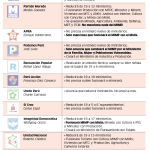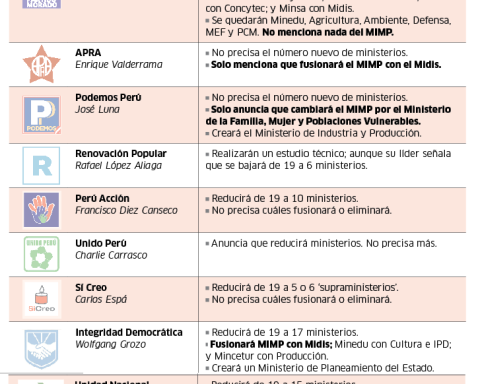Spain’s economy will grow less in 2023 although will avoid entering a recessionin the face of the worsening global economic context, according to the Central Bank of the European country.
The monetary authority of the Iberian country revised slightly upwards by one tenth its forecast for growth of the Gross Domestic Product (GDP) this year to 4.6%, and cut them by the same magnitude for 2023 to 1.3%.
One positive fact is that the agency ruled out the possibility of a recession in Spain, a possibility that is becoming more and more certain on the European continent during the next boreal winter.
In the same way, Looking to 2024, a rebound to 2.7% is expectedalthough two tenths less than expected in the last report because the relief measures for the energy crisis are expected to end at the beginning of that year, according to the quarterly report of the Bank of Spain, published by Europa Press.
For his part, for 2025, the monetary entity projects an expansion of 2.1%.
Spain, one of the economies most affected by the coronavirus in 2020 due to the impact of the virus on the tourism industry, will only recover its pre-pandemic levels -if the estimates are met- between the end of 2023 and the beginning of 2024.
Rule out recession
One positive fact is that the agency ruled out the possibility of a recession in Spain, a possibility that is becoming more and more certain on the European continent during the next boreal winter in countries like Germany and for the entire Eurozone as a whole, as confirmed by in its latest estimates the European Central Bank (ECB).
During the current final stretch of the year, the activity -advanced the agency- would be maintained at a level similar to that of the third quarterthat is, with weak consumption due to uncertainty and inflationary pressures, although without entering a technical recession (understood as a drop in two consecutive quarters).
In this sense, the estimate is that the Spanish economy closed the year with a quarterly advance of 0.1%compared to 0.2% in the previous period.
As anticipated by the Director General of Economy and Statistics of the Bank of Spain, Ángel Gavilán, the Spanish economy shows “appreciable resilience”, and it would maintain a similar level of activity in the first half of 2023.
However, Gavilán remained cautious and recalled that it is a “volatility context” so “it is rash to rule out any scenario.”
After spending the winter, the monetary entity predicts that the economy will recover its vigor with a decrease in inflation that will bring an improvement in purchasing power, a recovery of foreign markets; and the deployment of investment projects agreed with the European Union under the “Next Generation” program, created within the framework of the pandemic.
Part of the fate of inflation and growth will depend, according to the bank, on the extension or not of the relief measures of the Spanish Government, among them, the cap on gas rates, discounts on transport, the limit on rents and fuel price subsidy.
Only the extension of this last measure – which, for the moment, will end at the end of this year – will allow growth to rise in 2023 by one tenth and lower average inflation by six.

The drop in inflation
It is precisely the drop in inflation that will allow to give a greater air to the Spanish economy: from the historical peak of 10.8% reached in July, prices began a downward trend that placed them at 6.8% last month.
This led the Central Bank to lower its expected average for this year from 8.7% to 8.4%; and from 5.6% to 4.9% by 2023.
For 2024, 3.6% is expected, which indicates that Spain will continue for some time with an inflation rate higher than the average of 2% that it maintained before the pandemic.
One of the factors that will stop the fall in prices is underlying inflation, that is, outside of food and energy, since the passage of the increases to all goods and services has not yet been fully transmitted.
On the other hand, the Bank of Spain for 2023 expects an average unemployment of 12.9%, a deficit of 4.1% and a debt that will stand at 110.6% of GDP.


















